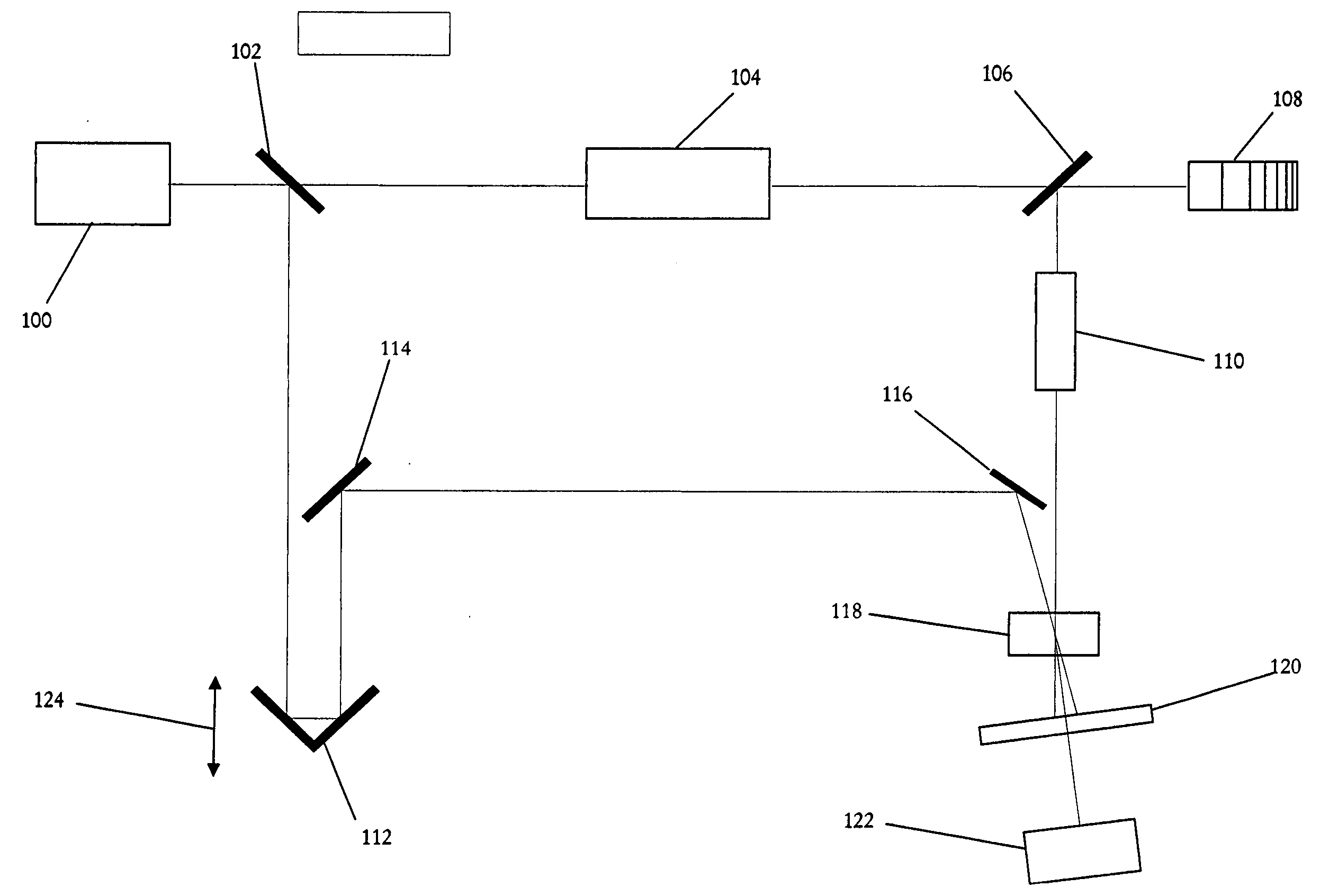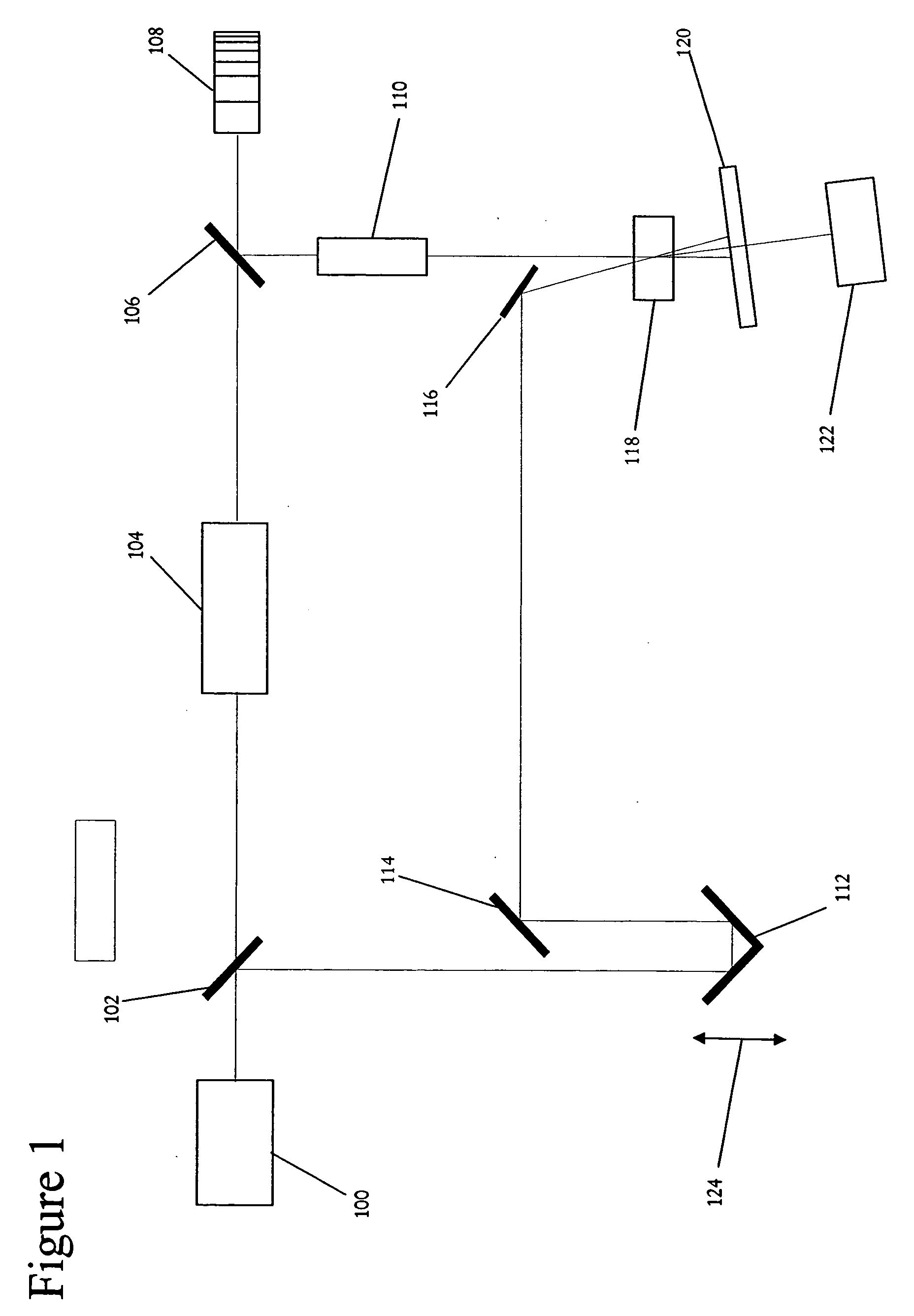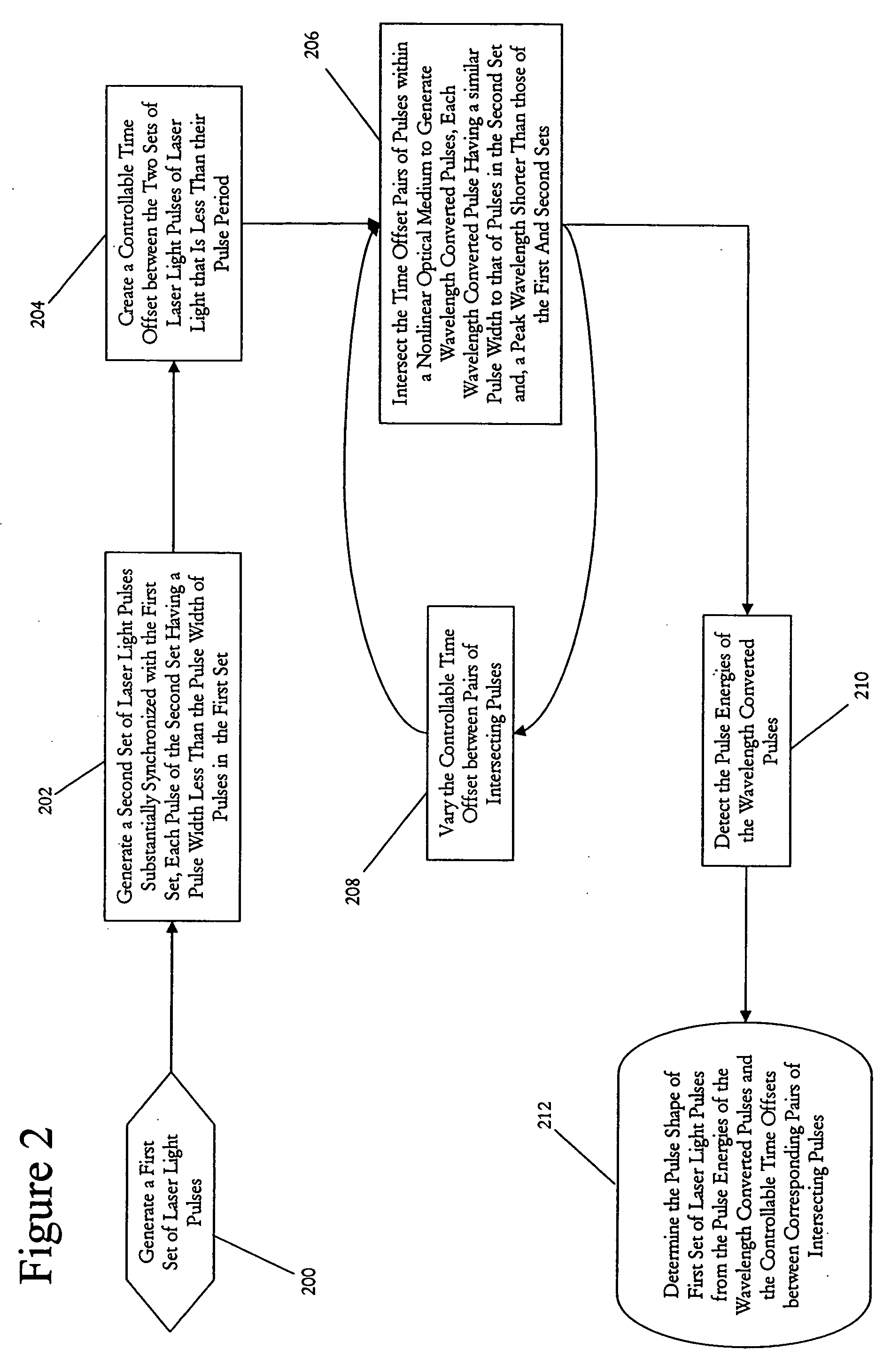Ultrafast laser pulse shape measurement method and system
a laser pulse and ultrafast technology, applied in the direction of measurement devices, instruments, using optical means, etc., can solve the problems of inability to temporally resolve the pulse produced by ultrafast lasers, inability to achieve the shape determination of ultrafast laser pulses, and inability to achieve picosecond laser pulses as well as the frog techniqu
- Summary
- Abstract
- Description
- Claims
- Application Information
AI Technical Summary
Benefits of technology
Problems solved by technology
Method used
Image
Examples
Embodiment Construction
[0015] As described above, a typical autocorrelation technique does not allow the pulse shape to be resolved and a FROG technique works best for shorter duration pulses that have relatively wide wavelength bandwidths. Therefore, a different approach is desirable for laser pulses with pulse widths, durations, in the range of about 100 fs to 1 ns.
[0016] The present invention provides such an approach, the use of a cross-correlation technique to measure the pulse shape, and duration. An autocorrelation technique is a correlation of two beams, the electric fields of which are identical or are proportional. One common way to perform an autocorrelation is for one beam to be split into two beams, and the then two beams are recombined with a controllable time offset. Equation (1) shows that the intensity of the autocorrelation is a convolution of the electric field for the first beam, E, with the electric field for the second beam, which is also E. In contrast, a cross-correlation is corre...
PUM
 Login to View More
Login to View More Abstract
Description
Claims
Application Information
 Login to View More
Login to View More - R&D
- Intellectual Property
- Life Sciences
- Materials
- Tech Scout
- Unparalleled Data Quality
- Higher Quality Content
- 60% Fewer Hallucinations
Browse by: Latest US Patents, China's latest patents, Technical Efficacy Thesaurus, Application Domain, Technology Topic, Popular Technical Reports.
© 2025 PatSnap. All rights reserved.Legal|Privacy policy|Modern Slavery Act Transparency Statement|Sitemap|About US| Contact US: help@patsnap.com



